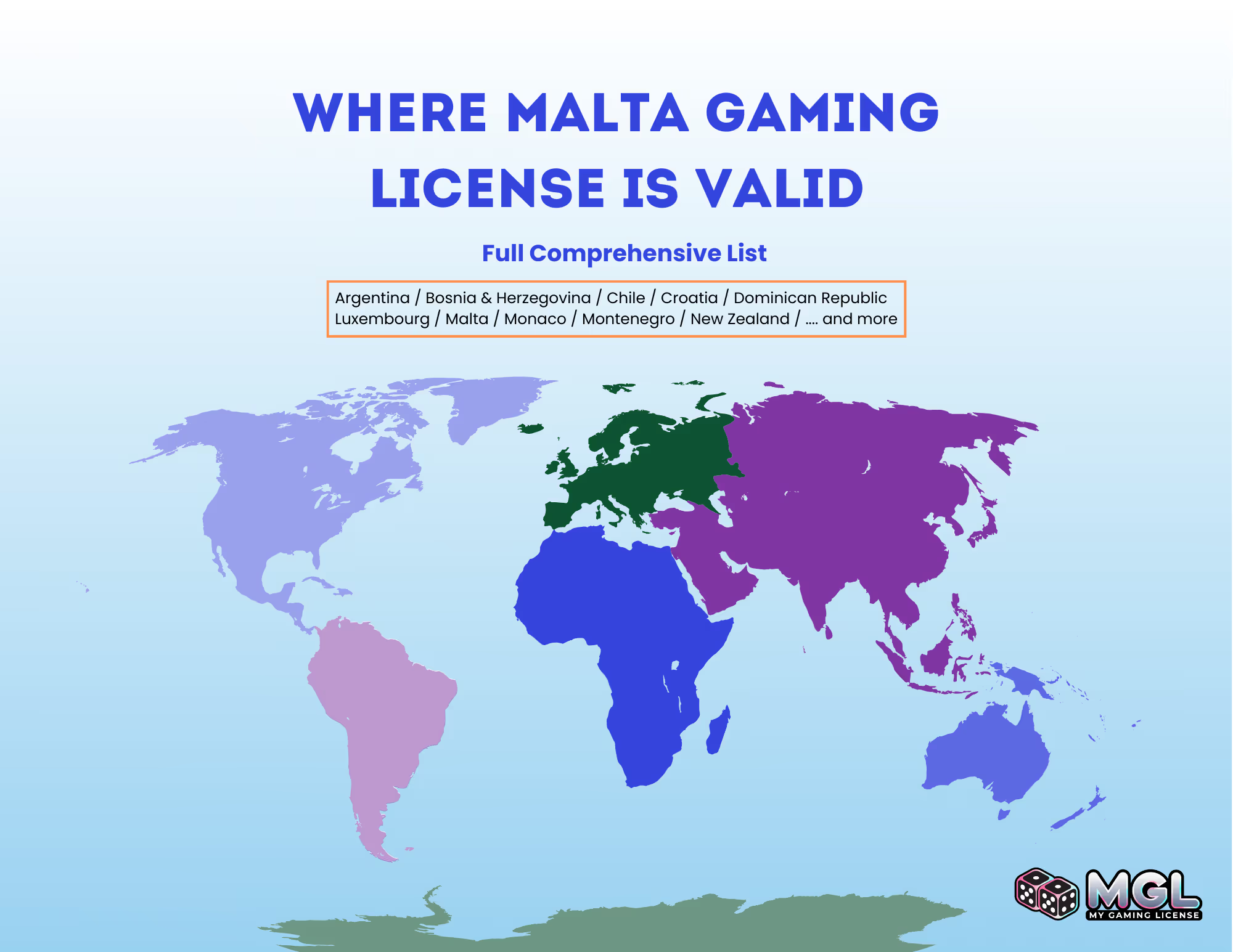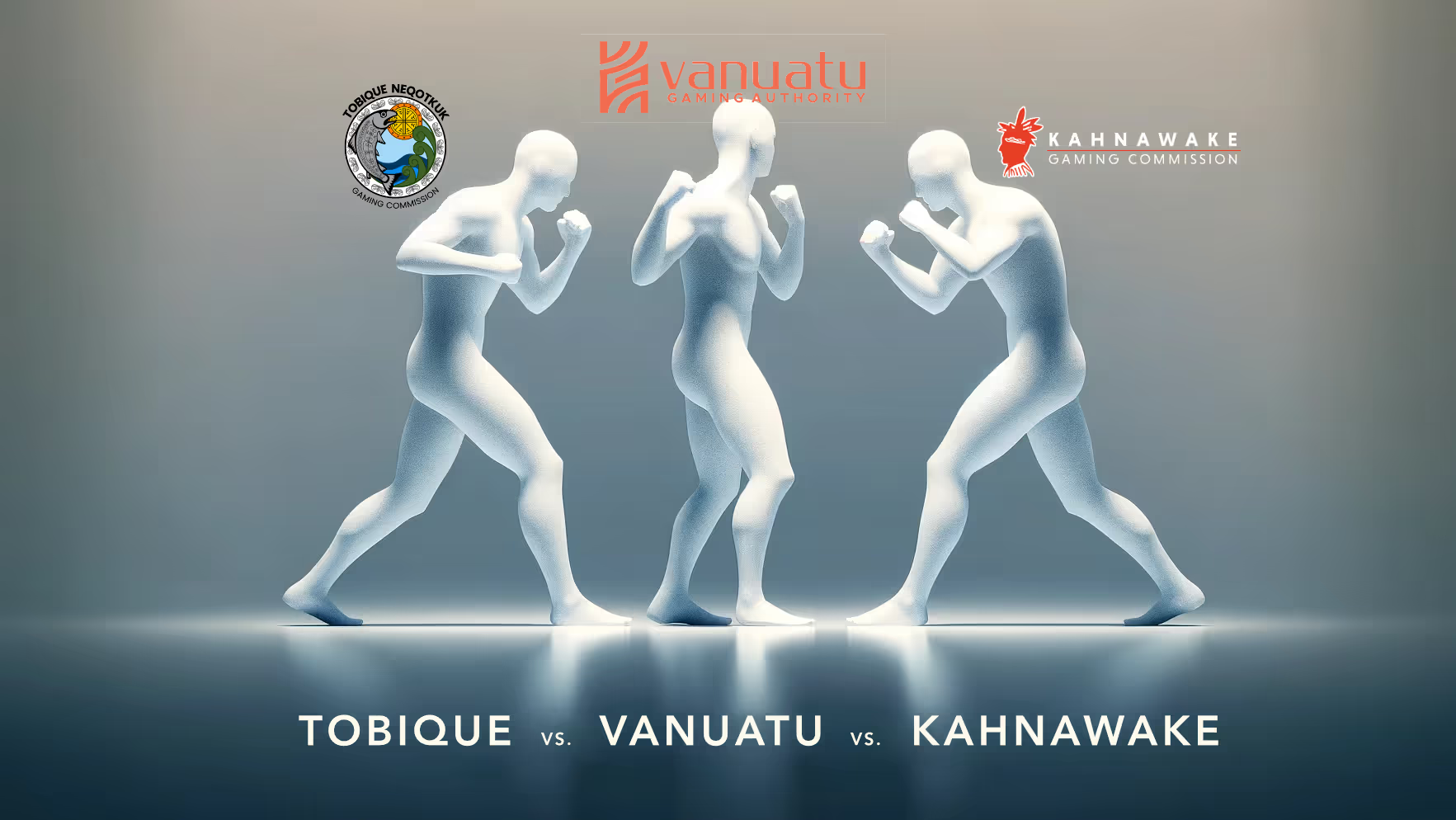Note from Writer and Licensing expert.
Without any further due:
The short list is in the article. The full one needs to be downloaded (link is also in the article). However, regulations are constantly changing and legal opinion is required before entering any market.
I highlighted important factors for consideration when choosing a Malta license. Real research with accurate facts and up-to-date statistics for 2025.
The Malta Gaming Authority (MGA) license is the most trustworthy certification in the iGaming market. The license has gained the trust of players, providers and national jurisdictions. Users are more likely to register on sites with a Maltese license than on those with other licenses.
Obtaining a Maltese license is difficult and it does require effort. The regulatory body does not take jokes lightly, so compliance with AML, KYC and CDD must be taken seriously. On the other hand, that is the exact reason why MGA is so highly regarded.
If you want to be one of the few holders of this license, this article will help you to get more information about the countries where the MGA license is valid and where it is restricted, and explore why operators and players alike value it so highly.
Overview of the Malta Gaming License
The MGA is often referred to as a golden standard in the iGaming industry. That is true because Malta sets benchmarks that other jurisdictions follow. For example, the island was a pioneer in implementing Anti-Money Laundering (AML) and Know Your Customer (KYC) standards to reach financial security and protect players.
The Malta Gaming Authority was one of the first regulatory bodies of its kind, starting its history from 2001. In 2004, Malta became a member of the EU, so it’s the first EU state with legislation for the remote gambling sector. The Gaming Act, adopted in 2018, changed the game, overhauled the legal framework and extended the validity period from 5 to 10 years.

Since then, Malta has become a home to over 300 gambling companies. Malta still continues to attract operators with its reliable gaming regulations and a bullet-proof reputation. By 2024, the jurisdiction was responsible for over 5% of the world’s legal virtual casinos. But it started to slow down.
Countries Where the Malta Gaming License Is Valid
The strong reputation of the Malta Gaming Authority makes the license acceptable and expected in a wide list of countries especially in the EU.
Countries with an MGA license allowed include the following:
- Argentina
- Bosnia & Herzegovina
- Chile
- Croatia
- Dominican Republic
- Luxembourg
- Malta
- Monaco
- Montenegro
- New Zealand
- Norway
- Panama
- Peru
- Qatar
- San Marino
- Slovakia
- Taiwan
- Venezuela
- Vietnam
- 20 more
It's important to note that regulations are constantly evolving, and the MGA license is no exception. As a result, the list of countries that recognize or accept this license may change over time. To ensure compliance and avoid potential legal issues, it's highly recommended to seek a legal opinion from a qualified local lawyer before operating under the MGA license in any specific country. Here we will assist you in finding trusted legal experts in any country, helping you navigate local requirements smoothly and confidently.










At the same time, there is a list of countries where a MGA license is restricted.
The list of countries where the MGA license is restricted includes:
- Australia
- Belarus
- Cyprus
- France
- Germany
- Italy
- Latvia
- Netherlands
- Poland
- Portugal
- Singapore
- South Africa
- Spain
- Turkey
- United Arab Emirates
- United Kingdom
- United States
- More..
These countries traditionally avoid international licenses and prefer to rely solely on their own jurisdiction. So operators must conduct detailed research and confirm compliance with local laws before entering these markets.
By the way, these are not exhaustive lists of countries where a Maltese license is allowed or restricted. Moreover, there are plenty more countries in the grey zone.
Benefits of an MGA License for Operators and Players
One of the most reputable gaming jurisdictions offers several advantages for operators, providing a safe and reliable experience.
High Credibility Among Players
The main principle by which the jurisdiction operates is user's protection. All the standards are designed to ensure fair play, and operators are required to promote responsible gambling. Clients know that casinos licensed by Malta guarantee protection. This includes clear terms and conditions, dispute resolution systems, and monitoring of operators to secure compliance.
Access to Regulated Markets
Malta Gaming Authority license provides operators with access to remarkable markets in the European Union. Except for a few areas where a locally issued license is needed. Anyways, the MGA license gives operators an opportunity to tap into a broad European customer base.

Description: MGA License approved countries
Compliance With AML Standards
In general, this online gambling license has a robust and transparent regulatory framework. Operators must ensure compliance with the high AML and KYC standards, as well as undergo software audits. Adherence to these standards protects the business and its reputation as a safe legitimate operator.
Support for Fair Play and Secure Gaming
The regulator and independent licensed testing firms test and verify online games to ensure that the software does not have predetermined outcomes. Moreover, the MGA also controls that prize money is paid out to players. In the end, operators benefit from it, as they are recognized safe and fair for gameplay. Big “fishes” are ready to invest when they have full trust in the business.
Ability to Leverage White Label Solutions
The online gambling license allows businesses to become a white-label operator. This is popular among gaming providers which willingly lend it. It enables businesses to launch a product swiftly with all of the benefits of a MGA, leveraging the software provider’s own industry expertise at the same time. However, the process of issuing sublicense is not so easy as it may look like.
Stability for Operators
As a fully-fledged EU member and the British Commonwealth member, the island in the Mediterranean Sea provides stability, both socially and economically. Being part of 70+ varied double taxation treaties, this online gambling license exempts operators from taxes in their original homeland.
Challenges and Limitations of the MGA License
A strong global reputation of the regulatory body comes with certain restrictions. Potential applicants should be prepared for the following:
The number of licensees is decreasing
According to MGA’s 2023 Annual report, the number of gaming companies holding a valid active licence decreased from 338 to 305 from 2022 to 2023. iGaming experts expect this number will drop even further by the end of 2024.

Source: MGA 2023 Annual Report
The number of new active player accounts has dropped
The number of new active player accounts stood at 17.4 million, corresponding to a 3.8% decrease (almost 700,000) when compared to 2022.
Additionally, the number of new registrations experienced a decrease of 14.7% when compared to 2022.

Source: MGA 2023 Annual Report
European operating restrictions
When operating in Europe, businesses must comply with European requirements and limitations. One of these is the EU’s, and especially Malta’s, dislike of cryptocurrencies. This payment method is not available in the jurisdiction, despite being the easiest way to receive money from clients.
Unlike the MGA, other international jurisdictions, such as Curacao and Anjouan, permit the use of cryptocurrencies, offering significant advantages to operators.
We offer our partner’s crypto payment solution with a commission as low as 0.4% on deposits and withdrawals, allowing operators to cut costs effectively and maximize their savings.
Complex requirements
The Malta licensing authority requires the appointment of approved individuals for key roles, including CEO, MLRO (Money Laundering Reporting Officer), Compliance Officer, and others. These roles can be combined in small companies if there is no conflict of interest, but large businesses must clearly separate them.
Delayed license processing
Obtaining a Malta license usually takes up to a year. Sometimes depending on the project, the timeline can take up to even 3 years.
High licensing investments
Applicants must meet the minimum share capital requirement. The exact share capital requirement depends on the game type and ranges from 40,000 EUR to 100,000 EUR per license. The total share capital of businesses holding all license types will not exceed 240,000 EUR in aggregate.

.avif)
.avif)
.avif)
.avif)
.avif)
.avif)
.avif)
.avif)
.avif)
.avif)
Wrapping Up
The globally strong reputation of the Malta gaming license offers a great number of advantages, but these come with a considerable cost. Future applicants must be financially prepared as the licensing process is expensive, complex, and time-consuming. Applicants need to be patient as they need to attend in-person meetings with authorities, cover a share capital, and submit an extensive set of documents.
However, if you are looking for an EU home for your iGaming business and the bulletproof reputation is essential for you, the Maltese license remains a strong and strategic choice.






.svg)

